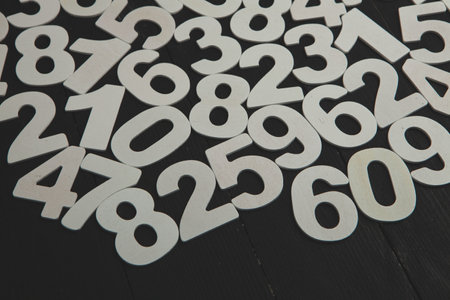Hyphenated Surnames: A Quintessentially British Story
There is something unmistakably British about the double-barrelled surname. With their distinctive hyphens, these names evoke images of sprawling countryside estates, ancient family crests, and centuries-old traditions whispered through oak-panelled halls. Yet, behind the elegance and formality lies a fascinating tale—a story woven through social transformation, personal reinvention, and the evolving tapestry of British identity. The rise of hyphenated surnames in Britain is not merely a matter of style; it reflects profound shifts in societys values and attitudes toward heritage, lineage, and self-expression.
Historically, double-barrelled surnames often signalled alliances between prominent families, especially among the gentry and aristocracy. Marriages forged not just romantic unions but powerful legacies—preserving both maternal and paternal bloodlines through the careful joining of names. Over time, however, the practice trickled down to wider society, becoming a symbol of modern sensibility as much as ancient lineage. Whether chosen to honour both parents equally or to embrace a blended cultural identity, the hyphen has become a subtle yet potent marker of personal narrative.
In contemporary Britain, adopting a hyphenated surname can signify everything from egalitarian ideals in marriage to a desire for uniqueness in an increasingly globalised world. It also quietly challenges old hierarchies by allowing individuals to curate their own identities—balancing tradition with innovation. As such, the evolution of double-barrelled surnames reveals much about shifting societal norms and the enduring quest for belonging and meaning within the British collective soul.
2. The Dance of Letters: Numerological Foundations
In the winding lanes of British heritage, surnames tell stories that stretch back centuries, each letter chosen echoing with the energy of ancestors and the land itself. Numerology—an ancient system revered by mystics, mathematicians, and philosophers alike—teaches us that every letter vibrates with a specific frequency. In Britain, where tradition often meets innovation, the practice of examining names through numerological lenses reveals deeper truths about destiny and self-expression.
At its heart, numerology assigns a number to each letter in the alphabet. These numbers are not arbitrary; rather, they hold symbolic significance drawn from Pythagorean teachings and other mystical traditions that have thrived across Europe. The table below illustrates the standard numerological correspondence used in analysing British surnames:
| Letter | Numerological Value |
|---|---|
| A, J, S | 1 |
| B, K, T | 2 |
| C, L, U | 3 |
| D, M, V | 4 |
| E, N, W | 5 |
| F, O, X | 6 |
| G, P, Y | 7 |
| H, Q, Z | 8 |
| I, R | 9 |
The dance of letters within a surname—especially when hyphenated—creates a unique vibrational signature. For example, traditional British surnames like “Fairfax” or “Montgomery” each carry their own energetic blueprint. When these are combined through hyphenation—a practice rooted in both aristocratic lineage and modern identity—the resulting sum can either harmonise or challenge one’s spiritual path.
This sacred coding suggests that your surname is not merely a social label but a spiritual map. In rural villages or bustling cities across the UK, people have long intuited that names hold power—power that whispers of destinies shaped by choices made generations ago. To decode this power is to embark on a journey of self-discovery that spans both time and spirit.

3. Doubling Up: How Hyphens Shift Destiny Numbers
In the intricate art of numerology, every letter carries a vibration, and every name is a vessel of potential. When two British surnames are joined by a hyphen—a tradition often seen in families seeking to honour both lineages—the consequences reach beyond the mere aesthetics of identity. The act of merging two family names doesn’t simply combine letters; it weaves together stories, histories, and energies, fundamentally shifting the numerological sum that shapes one’s destiny number.
Traditionally, each surname alone would contribute its own unique resonance to an individual’s life path. However, the hyphen acts as an energetic bridge, inviting a new synergy where individuality meets the collective strength of ancestry. This union is not just symbolic; it recalibrates the numerical landscape of one’s name. Suddenly, a simple “Smith” becomes “Smith-Jones,” and with that addition, the destiny number—a key aspect in numerology that influences purpose and direction—may transform entirely.
The British custom of hyphenation reflects a delicate balance between respecting tradition and expressing personal autonomy. There is an intuitive interplay at work: while tradition might encourage continuity and connection to heritage, individuality asserts itself through choice—selecting which names to merge and in what order. The collective energies of both surnames now dance together, sometimes harmoniously, sometimes with palpable tension. Numerologically, this can either amplify strengths or introduce new lessons into one’s spiritual journey.
For those attuned to subtle energies, it becomes clear that a hyphenated surname isn’t just about social status or lineage—it’s an alchemical process. Each letter, each component of the combined name, contributes its essence to the whole. In Britain’s rich tapestry of family histories, these hyphens signify more than unity; they mark the birth of new destinies shaped by both ancestral wisdom and modern choice.
4. Stories from the Isles: Real Lives with Hyphenated Heritage
Across the rolling landscapes of Britain, hyphenated surnames have long woven together threads of heritage, pride, and personal transformation. These names are not just linguistic curiosities—they can act as portals into the deeper realms of identity, subtly shaping the numerological destiny of those who carry them. To illuminate this phenomenon, let us journey through real-life stories from families whose fates have been touched by their double-barrelled heritage.
The MacGregor-Smiths: A Legacy Unfolding
Consider the MacGregor-Smith family of Edinburgh. Their surname was forged in the union of two prominent clans, and when calculated numerologically, the vibrational sum shifted dramatically compared to either name alone. For young Isla MacGregor-Smith, this new number aligned her with a path of leadership and innovation—mirroring her recent appointment as a local council leader at an unusually young age. Her parents often remark that their choice to preserve both lineages gave Isla a sense of rootedness and ambition that seems almost destined.
Table: Numerological Shifts in Hyphenated Surnames
| Surname | Numerological Value | Destiny Influence |
|---|---|---|
| MacGregor | 7 | Spiritual insight, introspection |
| Smith | 1 | Leadership, independence |
| MacGregor-Smith | 8 | Power, abundance, authority |
The Evans-Watsons: Bridging Cultures Through Numbers
Down in Cardiff, the Evans-Watson family tell a story of cultural blending. Originally Welsh and English, their hyphenated surname was born from a marriage that defied convention. When they explored their numerological profile, they discovered that their new surname number brought qualities of harmony and adaptability into family dynamics. The children, twins Bethan and Oliver Evans-Watson, each found themselves drawn to professions centred around mediation and healing—a manifestation their parents believe was nudged along by the very vibration of their shared name.
The Greene-Jones Paradox: Embracing Duality in Destiny
The Greene-Joneses of Manchester present another layer to this tapestry. For generations, both sides of the family exhibited starkly different destinies: one side creative but impractical, the other practical but risk-averse. When merged into Greene-Jones, their numerology reflected a delicate balance between creativity (3) and stability (4), resulting in descendants who excelled as architects—blending art with structure.
Narrative Threads: Shared Lessons Across the Isles
These accounts remind us that hyphenated surnames are more than social statements or genealogical footnotes. Whether you’re a MacGregor-Smith pioneering new paths or an Evans-Watson harmonising worlds, your name’s numerological resonance may quietly guide your footsteps across Britain’s ancient soils. In embracing these composite identities, British families are discovering not only where they come from—but also where they are destined to go.
5. Whispers of the Ancestors: The Spiritual Invitation
To embrace a hyphenated British surname is to enter into a subtle, almost mystical dialogue with one’s lineage. In the rolling hills of the Cotswolds or the winding streets of Edinburgh, names echo through generations, carrying with them stories and energies that shape identity in ways both visible and unseen. Choosing to carry a double-barrelled name is more than a nod to modernity or social convention—it is an intuitive act of honouring ancestry, weaving together two threads into a single, richer tapestry.
When we unite surnames—perhaps Smith-Jones or Carter-Williams—we symbolically acknowledge that our roots are not singular but entwined. This conscious blending invites us to reflect: whose footsteps do we follow? What lessons linger in the syllables we speak and write daily? In numerological terms, the sum total of these letters forms a new vibration, and with it, a fresh destiny code. It is as though the ancestors whisper through these names, inviting us to become stewards of their legacies while forging our own path.
Yet this inheritance is not without its metaphysical responsibilities. The hyphen acts as both bridge and boundary—a liminal space where old energies meet new intentions. To bear such a name is to accept an invitation from spirit: can you hold the complexity of dual heritage? Will you honour both histories equally, allowing their wisdom to guide your choices? For some, this spiritual invitation arrives quietly—an intuitive knowing that their journey is now entwined with those who came before, and those yet to come.
In British culture, where tradition often mingles with transformation, double-barrelled surnames become living symbols of unity and evolution. Whether chosen for love, legacy or personal empowerment, these names ask us to walk mindfully between worlds—carrying not only the pride of our ancestors but also the courage to carve out our unique purpose. In this way, hyphenated surnames serve as portals: openings through which ancestral blessings and challenges alike may flow, shaping our numerological destiny in profound and unexpected ways.
6. Modern Britain: Identity, Belonging, and Spiritual Legacy
In the patchwork quilt of contemporary Britain, hyphenated surnames are more than a genealogical curiosity—they are living threads that stitch together stories of heritage, transformation, and spiritual evolution. As British society grows ever more diverse and interconnected, these names become signifiers of both personal identity and wider collective belonging. The numerological patterns woven into hyphenated surnames continue to ripple through the lives of those who bear them, inviting reflection on how ancestral echoes shape present-day journeys.
Contemplating Identity in a Hyphenated Age
To hold a hyphenated surname in modern Britain is to carry a visible sign of duality or multiplicity—a blending of lineages, traditions, and sometimes even worlds. It can be a subtle act of resistance against forgetting, an embrace of complexity over simplicity. In numerological terms, this complexity offers fertile ground for spiritual growth, as individuals are called to harmonise competing energies within themselves, nurturing both independence and unity.
Belonging Beyond Bloodlines
Hyphenated surnames also challenge traditional notions of belonging. They invite new definitions—of family, community, and self—that are fluid rather than fixed. In towns and cities across the UK, from Glasgow’s bustling streets to London’s multicultural boroughs, these names echo the broader national journey towards inclusivity. Numerologically, this can represent a collective awakening: each name holds vibrations that ripple outward, subtly influencing the energetic landscape of British society.
The Spiritual Legacy Continues
As we look forward, the ongoing influence of hyphenated surnames on personal and collective evolutionary journeys is undeniable. Their presence encourages us all to contemplate our own roots—where we come from and where we are heading. In doing so, we participate in an unfolding spiritual legacy: one that honours diversity while seeking harmony; one that recognises the power of names not only to describe but to transform destinies.


